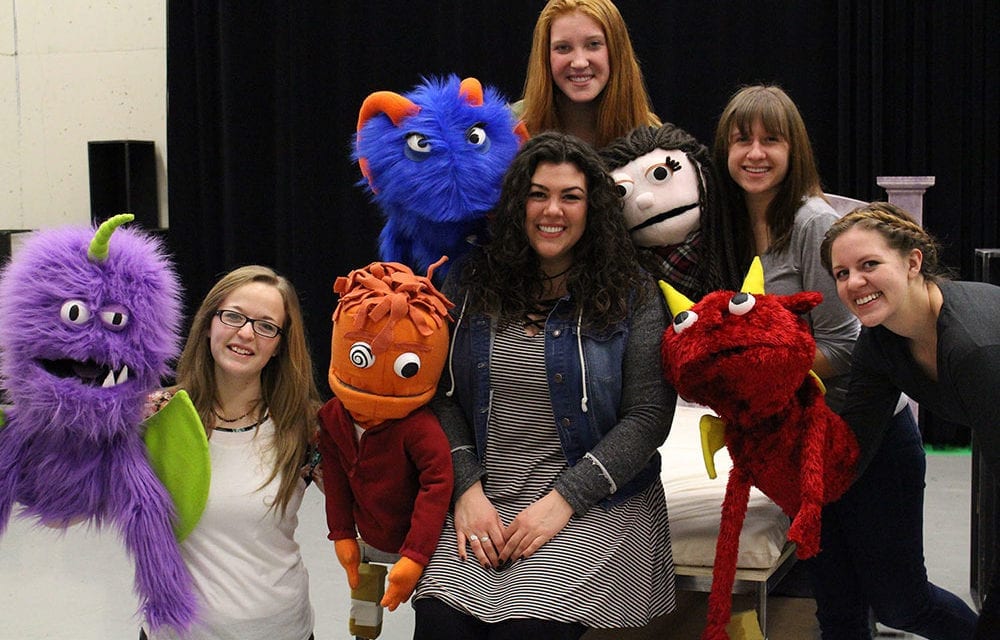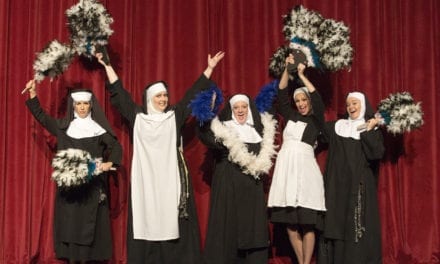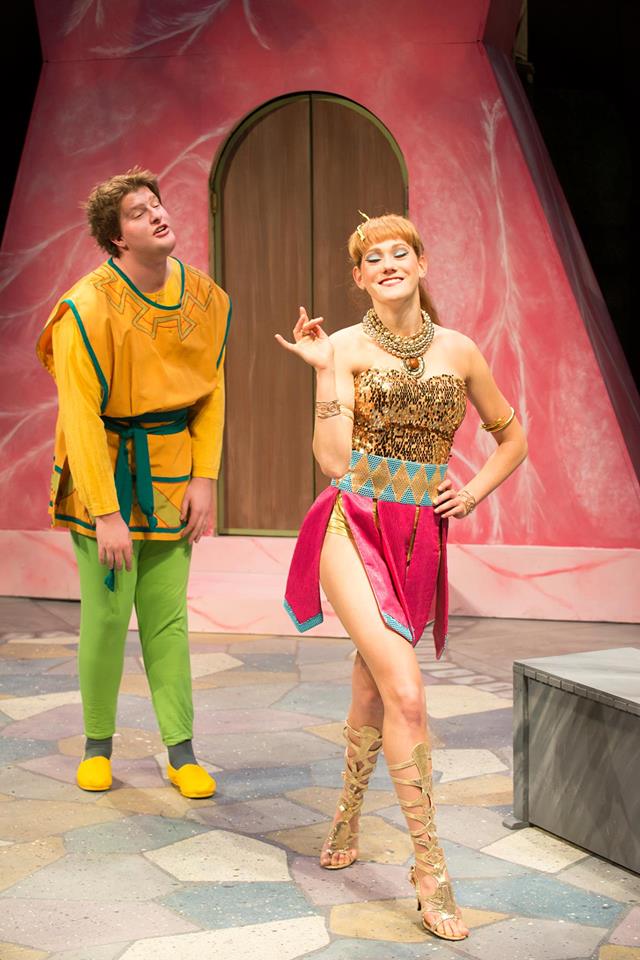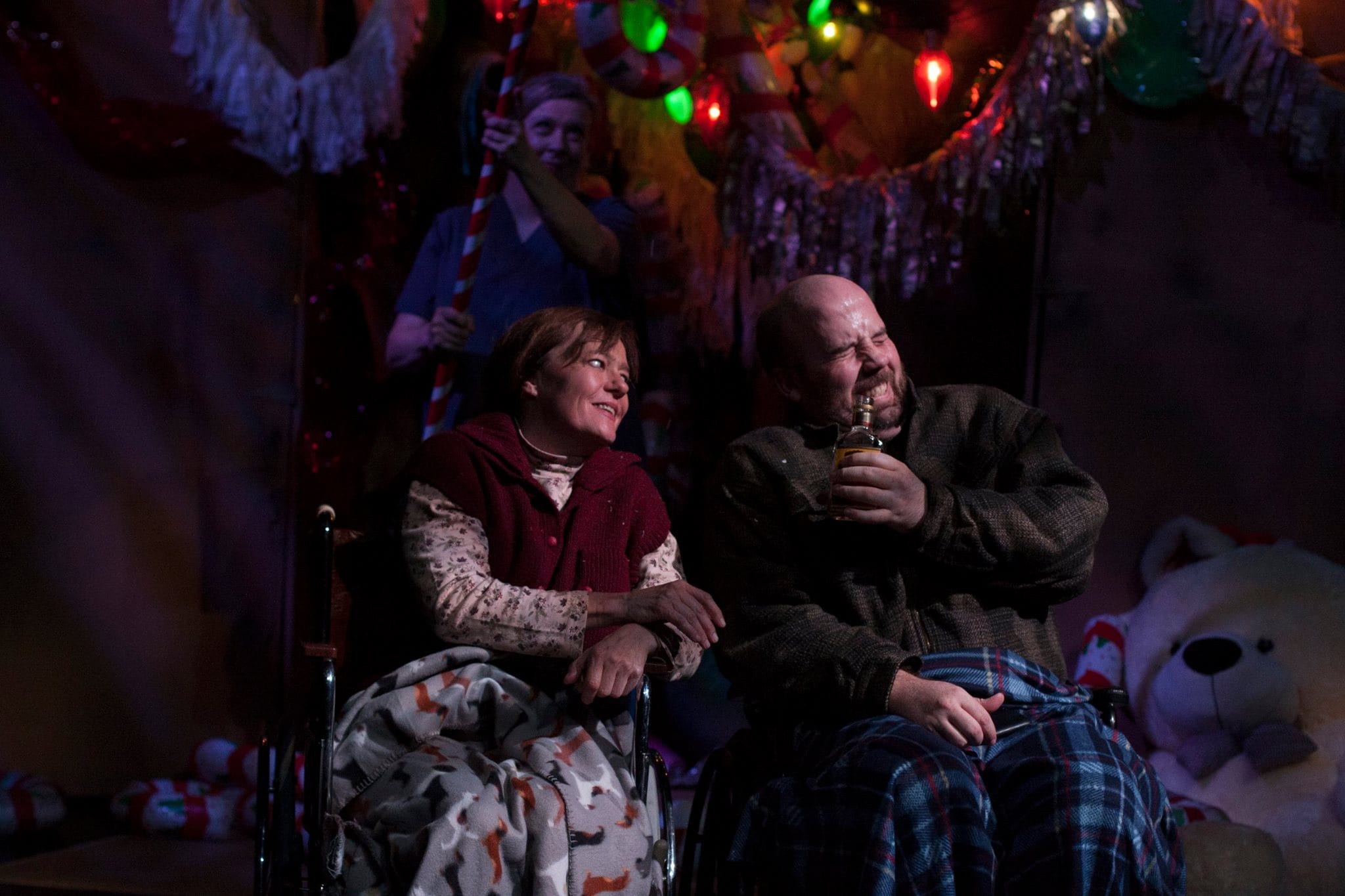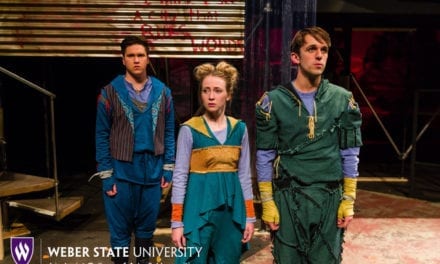PROVO — Depression is one of the most common psychiatric disorders in America, and it cruelly exacts its toll on millions of people every year. Chandra Lloyd’s new Happysadness is a play about depression that could have been relevant to many people. Unfortunately, this production did not live up to its potential.

Show closes February 25, 2017.
Happysadness tells the story of Val, a young woman suffering from depression and an anxiety disorder. Most of the play revolves around Val’s symptoms and how she struggles to deal with them. Val’s experiences are punctuated regularly by therapy sessions—most of which blend together before the play reaches its halfway point.
One inherent problem with the script is that Val—the central character—is not a fully developed human being. Instead, she is a collection of symptoms. In fact, I have the sneaking suspicion that Lloyd looked up the diagnosis criteria for major depressive disorder in the Diagnostic and Statistical Manual of Mental Disorders and tried to fit every symptom into the script. Beyond her symptoms Val’s only characteristic is her love for rock music, a trait so emphasized that hearing about it grows tiresome as the play continues. I have never spent so much time with a character without learning anything meaningful about them.
The script problems do not end with Val, though. Several scenes with her therapist, Jim, are problematic. In two of the sessions Jim talks more about himself than about his client (a big no-no in the therapy world). He also, throughout the play, engages in excessive self-disclosure. The other major supporting character, Ben, is a romantic interest about whom the audience knows nothing beyond the fact that he is a cute boy in Val’s biology class.

Top: Erin Ellis. Bottom, left to right: Leah Brandt, Katie Jarvis, Bethany Wood, and Olivia Ockey. Photo by BYU Photo.
In addition to the shallow character development, Lloyd’s script has inherent structural problems. The first 80 minutes of the play mostly switches between Val’s symptoms and the therapy sessions. This format grows dull, and the play would have been greatly strengthened with a secondary plot and more interpersonal conflict. The play is also full of references to Edgar Allan Poe, Shakespeare, Sylvia Plath, Star Wars, Virginia Woolf, Star Trek, and more. The unfortunate effect of these references is that they frequently reminded me of much better works of art that would have provided a better way to spend an evening. Finally, the script is also full of references to classic rock songs (including “Bohemian Rhapsody,” “Teenage Wasteland,” and “Benny and the Jets”) that seem overly self-indulgent. I suppose that if one’s taste in music is the exact same as the playwright’s, it would be enjoyable; otherwise, it gets tedious. But these criticisms of the script should be tempered with the knowledge that Happysadness is a work in progress. Some heavy revisions could make the play work better.
It is hard to say much about Taylor Hatch’s directing and the actors’ performances because of the quality of the material they had to work with. Erin Ellis and Bethany Wood were enjoyable as they operated the Avenue Q-like puppets that represented Val’s depression and her inner thoughts, respectively. Katie Jarvis was completely devoted to the role of Val, and she enthusiastically grooved to the music. Paul McGrew, in the role of Jim, was satisfactory and had a comfortable back-and-forth with Jarvis. Hatch managed the meandering script well and kept the cast energized from scene to scene.
Although the play is fundamentally flawed and won’t teach its audience much about depression that they don’t already know, it is clear that there is a passion behind the show. Happysadness would not have gotten on stage without the drive and devotion of people who believe in the play. But a truly meaningful play needs more than passion to work. Audience members looking for an engaging theatrical production will find that Happysadness is the wrong prescription.

